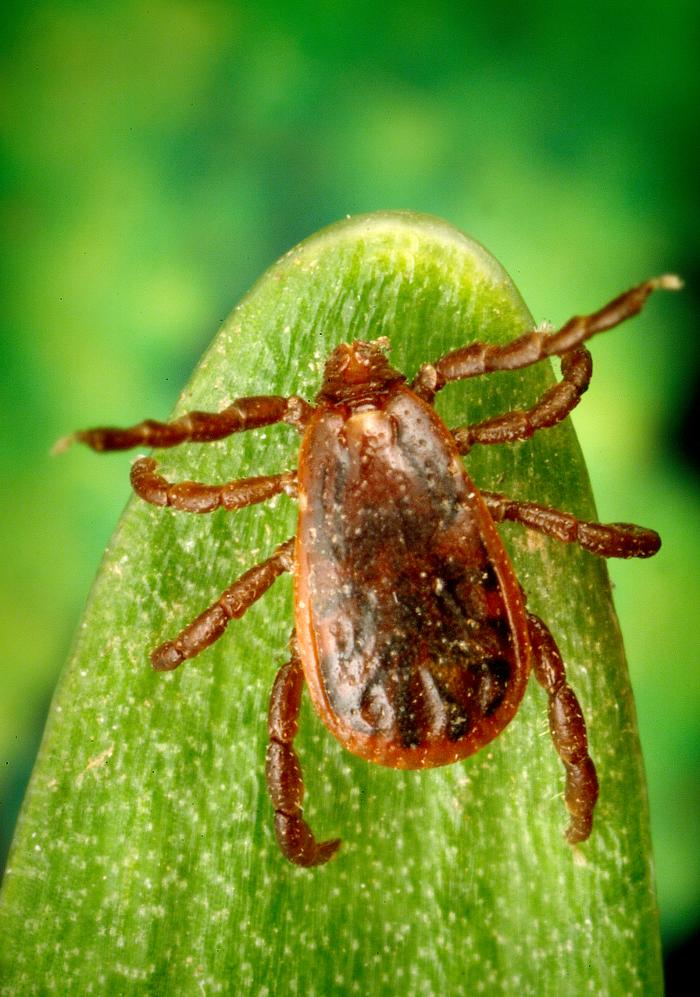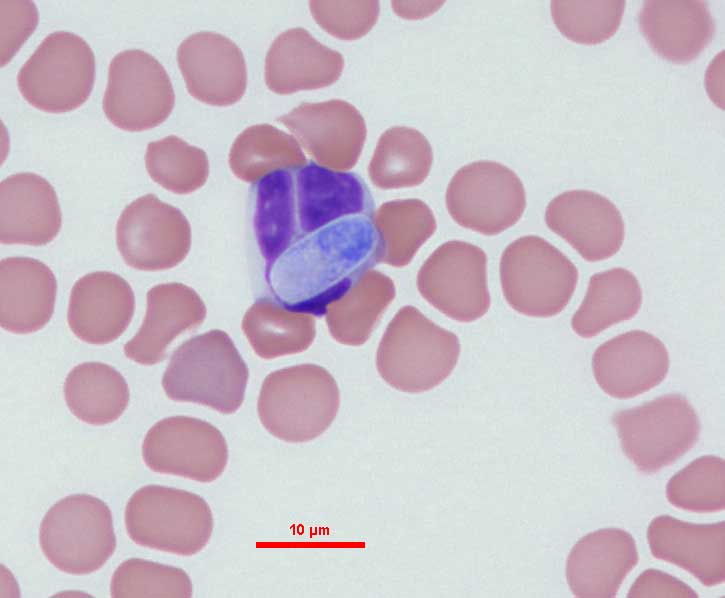Hepatozoon
(Hepatozoon canis)
Hepatozoonosis is a tick-borne apicomplexan protozoan distributed throughout the tropics and subtropics. Mild to severe disease may manifest in dogs.
| Parasite: Hepatozoon canis |
| Common name: Hepatozoon |
| Hosts: Dogs and wild canids |
| Location in host: Gamonts in cytoplasm of neutrophils and monocytes |
| Distribution: Tropics and subtropics, worldwide |
| Transmission route: Oral (ingestion of infected ticks) (Fig 1), transplacental transmission |
| Zoonotic: No |
Distribution
Hepatozoon canis in found in southern Europe, Africa, Asia, Latin America and parts of the USA, whereas H. americanum is restricted to south-eastern USA.
Clinical signs
Hepatozoon canis infects the haemolymphatic tissues and causes anaemia and lethargy. Hepatozoon canis infection varies from being subclinical in apparently healthy dogs to severe with lethargy, fever, cachexia and pale mucous membranes due to anaemia.

Figure 1 The brown dog tick, Rhipicephalus sanguineus sensu lato, a vector of H. canis (Image credit: CDC/James Gathany; William Nicholson)

Figure 2 Hepatozoon canis gamont in a neutrophil of a stained capillary blood smear. (Image credit: Dr. K. Kamyingkerd)
Diagnosis
Hepatozoon canis infection is frequently diagnosed by microscopic detection of intracellular H. canis gamonts in neutrophils and monocytes in stained capillary blood smears (Fig 2). The degree of parasitaemia is directly proportional to the severity of clinical signs. PCR of whole blood for H. canis detection is sensitive and specific.
Treatment
Hepatozoon canis infection is treated with imidocarb dipropionate at 5-6 mg/kg IM or SC every 14 days until gamonts are no longer present in blood smears. The decrease of parasitemia is slow and usually requires several repeated imidocarb treatments.
.
Control
Prevention consists of the use of topical acaricides and environmental parasiticides. Furthermore, it is recommended to avoid the dog ingesting ticks while scavenging or grooming.
Public health considerations
Hepatozoon canis is not zoonotic. Hepatozoon infection in humans has not been described except for a single case in which the species was not identified.
